Table of Contents
ToggleLet’s face it, not everyone’s goals are noble and pure. That’s why we need to learn how to find out someone’s intentions, to filter those with dubious purposes from the good ones.
We need to know if someone has good intentions or bad ones for our safety. Because harmful people can be a danger to us. Be it physically or mentally.
Figure out what actions they’re taking towards you or other people
You can figure out someone’s true intent by observing their actions towards you and others. This way, you can watch the reaction of yourself or the people they’re interacting with.
This response from you or the other folks is what they are getting out of their actions.
To give you an example, let’s say that somebody at work is always laughing and talking with the boss in their spare time. The reaction of the boss is favorable, all the while being protective of this person. The person in leadership even promotes them.
This might mean that you have just figured out the true intentions of that employee in question. Which is either to protect/safe their hide, be it to get more influence or get a promotion. Of course, it’s also possible that they just like each other without any further implications.
It can also be the case that this coworker got the promotion because they’re the most competent, and deserving of that title. That’s why you should always observe honestly, and truthfully without prejudices.
Figure out what results that person’s behavior is producing

If the actions of a person are invisible or unknown at the moment, then you should attempt to figure out what results their actions are producing.
For example, if your boss keeps chatting with one particular colleague and giving them privileges, then your colleague might be kissing your boss’ behind to get these exclusive rights.
The executive might also be getting information from that particular employee about the other co-workers. Of course, again, it’s possible they just like one another and thus, like being in each other’s vicinity.
So in short: To figure out someone’s goals, you can either look at:
- Their actions
- Or at the results of their behavior.
Preferably, you do both to come to the best analysis.
Interestingly, one particularly fascinating study suggested that we can sometimes visually perceive the intentions of others, just as we can see someone trying to avoid detection or going across a physical obstacle.
How to read someone's intentions?
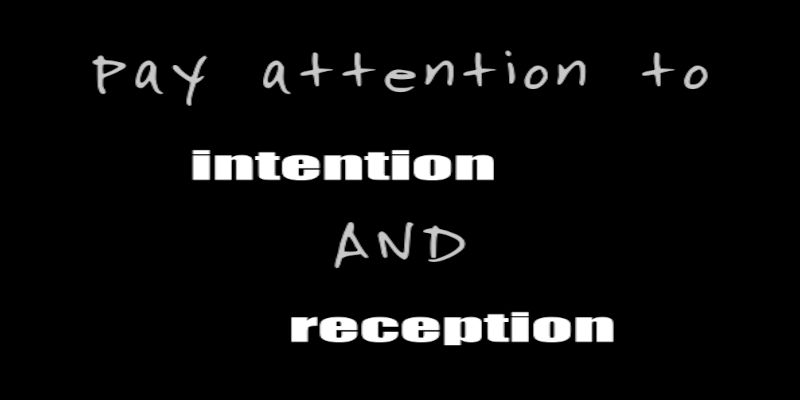
Be objective
You can’t read someone’s intentions if you’re not objective.
If you start with preexisting beliefs about an individual, then you can’t remain neutral enough to find out the truth.
We tend to fall prey to confirmation bias, which intends that we deliberately search for information that confirms our beliefs, while simultaneously disregarding all data that says otherwise. Needless to say, that isn’t an objective way of observing.
Remain open-minded

Remain open-minded enough to find out the truth, even when you don’t necessarily like it. People are inclined to discard the facts when they’re painful. Yet, the truth might hurt, but it will eventually set you free.
It’s also a necessity to have the capacity to admit that you’re not perfect, and can potentially be wrong, or make a wrong judgment regarding someone’s character.
Pay attention to appearance
They often say that you shouldn’t judge a book by its cover. Yet, I think that our physical appearance tells a lot about someone’s personality.
You should evaluate someone’s clothes, how they carry themselves, how they walk, whether they’re fit, muscular, confident, and so on to find out what someone’s truly like.
Look at people’s posture

Observing a person’s posture can tell us whether they’re confident, physically strong, proud, and many more things.
That’s why just watching how someone walks and stands can tell us a lot about their character.
Watch for physical motions
Do they make slow movements, or are they making fast, twitchy motions? Do they walk quickly like they’re in a hurry, or do they walk around like they have all the time in the world?
The way someone acts and moves their body can tell us if they’re nervous, or confident. Whether they’re afraid, or self-assured.
Read facial expressions
Our face is the most expressive part of the human body.
Just think of all the emotions we can show by simply making small movements by frowning, smiling, crying, tensing the facial muscles, and how much information that conveys regarding our mental state and current mood.
Our facial expressions might just be the easiest way to find out if someone’s telling the truth, and if they truly mean the best for us or not.
Observe people’s eyes

They say that the eyes are the mirror of the soul, and I think there’s something to be said about it. The eyes never lie. It’s very hard to voluntarily control our eye movements. Thus, they’re key to finding out someone’s true nature.
Not to mention that making eye contact is always a good thing. It builds trust and shows confidence.
Most people won’t even notice that you’re figuring out their character by watching their eyes. But be careful not to appear like a creep by staring into their eyes forever. You should look away occasionally to prevent things from getting awkward.
Engage in small talk

Engaging in small talk might seem meaningless to some people. Yet, it can serve a vital purpose besides getting to know each other and becoming more comfortable with one another.
People might unintentionally tell you things they wouldn’t normally tell you since they’re comfortable, and not thinking too much about what they’re saying since it’s “simply small talk.”
People will tell you everything you want to know when you practice active listening skills, especially when the mood is light and loose.
Scan the person’s overall behavior
One sole observation will not tell you enough to know exactly what somebody’s up to. We need to get a holistic perspective on someone’s overall behavior.
That’s why you shouldn’t exclusively watch the eyes, the face, or how someone’s posture is.
Try to analyze as many aspects as possible to get a better understanding of the big picture.
Ask direct questions

If you want to know how to ask about someone’s intentions, then it can be as simple as asking straightforward questions.
This can catch them off guard which can make them answer truthfully, or make them go on the defensive, trying to hide their goal.
Either way, the shock effect of this brutal, straight-to-the-point honesty can be enough to make you decipher if they’re honest or not.
Watch the words and tone being used
You can often figure out if someone’s intentions are genuine by watching the words and tone that are being employed.
Are the words and the tone neutral, peaceful, or aggressive sounding? The tone, also known as how we say something, is regularly more important than what we say.
That’s why you should make it a point to watch the delivery of the message rather than what’s being said.
Practice watching people

Overall, what you should be learning is to take note of other individuals. Watch their movements, their posture, facial expressions, and the tone and words they use to make conversation.
You need to make this a habit, which means it’ll take some time to get used to before it becomes a routine that you habitually employ instead of having to consciously think about it before you can do so.
Pay attention to flashes of insight
Everyone knows the feeling of that sudden insight hitting them in the face. Sometimes due to acquiring new information, or because the pieces of the puzzle finally come together.
Whatever it is, don’t be afraid to gain, and integrate new information into your already existing perspective about someone. You’re never too old to change and learn!
Listen to what your gut says
Perhaps one of the most underrated tips to teach yourself how to know people’s real intentions is listening to your gut feeling.
This can be incredibly powerful since our intuition is regularly right.
However, beware that it might be wrong as well since it’s more or less based on feelings and subjective observation.
Nevertheless, that doesn’t mean that it can’t be a viable instrument to aid you in your quest to figure out somebody’s true nature. You should integrate it into your toolbox, seeing as it’s invaluable.
Frequently Asked Questions (FAQ)
What do intentions mean?
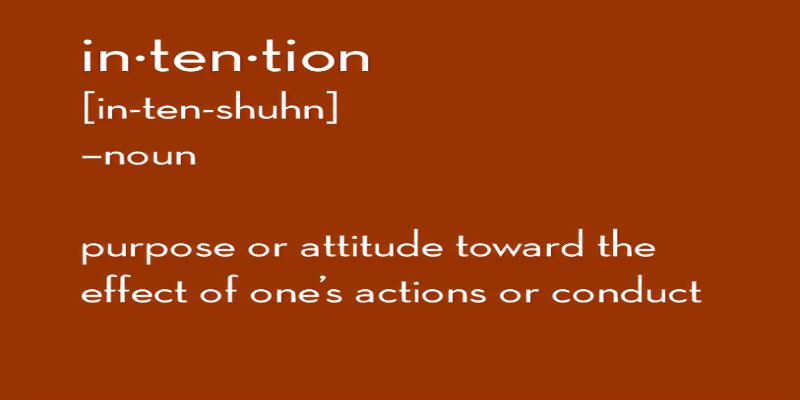
Intention can be defined as the mental state of an individual that represents the willingness and commitment to carry out tasks and actions in the future.
Intent requires a lot of mental processes like planning, for example.
Some people are well-meaning, and some are ill-intended. Although this might not be immediately transparent from a person’s verbal or physical actions. People often try to hide their true purposes.
What do good intentions mean?

Good intentions refer to the mental state of an individual that represents the helpful and genuine willingness and commitment to carry out tasks and actions in the future.
So good intentions are good intentions towards someone or something.
Common synonyms are positive intentions, pure intentions, honest intentions, or noble intentions.
What do ill intentions mean?
Having ill intentions means the mental state of an individual that represents the deceitful and harmful willingness and commitment to carry out tasks and actions in the future.
It means having bad intentions toward someone, or something.
Wrong intentions, evil intentions, or malicious intentions are considered synonyms.
What do true intentions mean?

True intentions mean the real intent behind something. This means not the exact verbal interpretation of what that person said.
Someone’s true intentions can be positive or negative. Negative true intents are often concealed behind seemingly noble and pure intentions. But time shows true intentions eventually.
So both good and bad goals have an intent to carry out tasks and actions in the present and future, perhaps even with the same results in the short term. But in the long run, those results won’t stay the same due to their different “aims” for carrying out those tasks.
True intentions are not always shown to the public, as this could be detrimental to the goals of that person. People who have malicious intentions regularly hide their real intentions behind a layer of seemingly pure and noble goals.
People with good intentions have genuine aims. Ill-intended people frequently have different ends than they portray to the public.
Examples of good and bad intentions

Let us give a practical example of someone with good intentions and another person with bad intentions that could happen in real life to make things clear.
We have two co-workers who do the same job. Let’s just say that they are both equally smart and equally skilled for ease of measurement. They both work just as hard and carry out their tasks every bit as well.
The only difference is that one of them likes their work and tries to do it as well as they can because they find it important to deliver quality work for the company. This person’s actions are pure and ethical. In other words, this person has good purposes.
The other person does it purely to avoid punishment from the boss and because they are handsomely compensated. This person’s actions are more guided by fear of punishment and personal gain rather than goodwill. This person’s actions are less pure and more or less based on some form of external reward. That person has ill intentions.

Even though both seem to do their work equally well at first glance, their goals are not the same. This means that eventually, given enough time, the results of both individuals will not stay the same.
You might say, well they both do an evenly good job, so it’s all good, no? Well, not exactly.
In the short term, they will both work equally well and produce the same results. However, in the long-term, let’s say a few months to a couple of years down the road, they won’t produce the same results anymore.
That’s because one person does it. After all, their intrinsic value is to deliver a good product, since they enjoy their work. The other person does it purely for the rewards in the form of money, prestige, or good graces and to avoid punishment. That individual is not intrinsically motivated to deliver a good product.
Figuring out other people’s true intentions and more importantly, being conscious of your purposes helps to put yourself on the right course to reach your goals. Figuring out someone’s true intentions also allows you to protect yourself from potentially dangerous or manipulative people and situations that you could end up in.
How figuring out someone’s intentions can save you
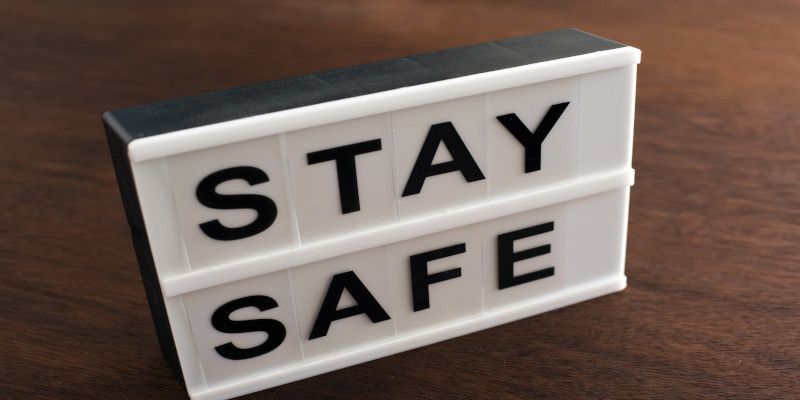
In more ancient times, it was of vital importance for human survival to figure out the intentions of other humans they were interacting with. They needed to know who had genuine intentions and who they could trust.
They had to know and avoid those who had malevolent and dubious intentions to survive. Their lives depended on it. People from the same tribe who trusted each other protected the group from other tribes or intruders.
In more recent times it’s less about life-death situations, although it can still be this way sometimes! Think about a man with bad intentions walking towards a woman in a dark alley. This is potentially a life-or-death situation.
Anyway, it’s still very important for human beings to try to figure out the true intentions behind people’s actions to know who they can trust. This is of considerable importance to protect ourselves from other people who mean mental harm like emotional manipulation for example and physical harm like murder, rape, aggression, …

People’s motivations for action are frequently self-serving, like getting a promotion or a raise, for instance. It’s also possible that they need other people to do something for them or to get affirmation, so the person in question can feel good about themselves.
We need to know what other folks want to have meaningful relationships with them. Those purposeful bonds are vital for our survival and happiness. However, don’t be naive and blindly trust everyone you meet. Because not everyone out there wants the best for you.
Of course, there’s no fail-proof way to figure out someone’s intents, seeing as you combine both subjective and objective aspects to reach a likely conclusion.
These subjective features can be interpreted incorrectly, so you may be wrong about someone’s true intentions and misjudge a person. If this is ever the case, then I advise you to be honest and apologize sincerely and honestly.
Is it possible to have no intentions?

Normal people have intentions. Be it good ones, or less noble ones. Thus, having no intent is not possible for the average person.
However, there are people out there suffering from debilitating diseases that make it so they have no intent anymore.
This is due to a disbalance in certain hormonal activities. Interestingly enough, supplementing said deficient hormone by exogenous injection makes them experience purposes again.
Questions to ask to know someone’s intentions
- “What do you want to achieve in life?”
- “What makes your life worth living?”
- “What do you find important in life”
- “Where do you see yourself in 10 years?”
- “Why do you like me?”
- “What are your plans with me?”
- “What do you think about our friendship/relationship?”
- “Are you a trustworthy person?”
- “Are you looking to commit to someone?”
- “Would you like to get married?”
- “When would you like to get married?”
- “Would you like to have children?”
- When would you like to have children?
These questions are just some examples of how you can find out someone’s true intentions.
Many more possible questions exist, so don’t feel limited to just those illustrations. Be creative!
Conclusion
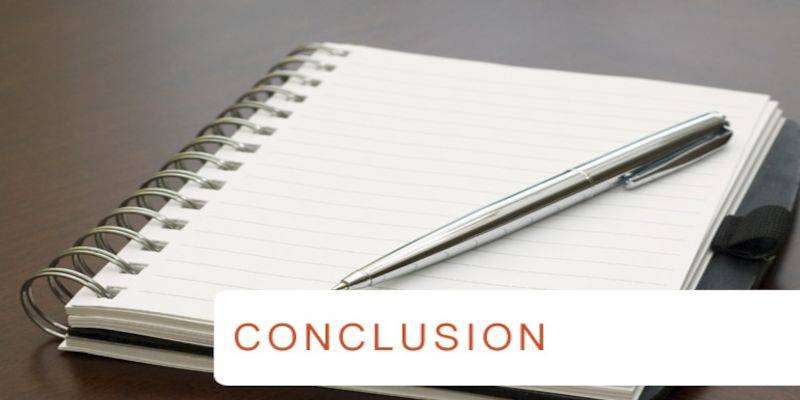
Build up enough self-confidence to dare figure out someone’s ends.
Malicious intended people can be dangerous. Thus, it is certainly beneficial to figure out someone’s goals to protect ourselves and others from harm.
Being too trustful and naive often leads to painful life lessons that we need to learn to prevent making those same mistakes in the future.
Cherish those people with pure and noble intentions. Because someone’s true intentions are not always so positively inclined towards others. Not to mention that we don’t make all that many real friends throughout our lives.
Remember that the road to hell is paved with good intentions. This means that although someone has good intentions, they can be useless when not undertaking action, or by executing them badly.
The eyes frequently give away what a person wants. That’s because “the eyes are the key to the soul.”


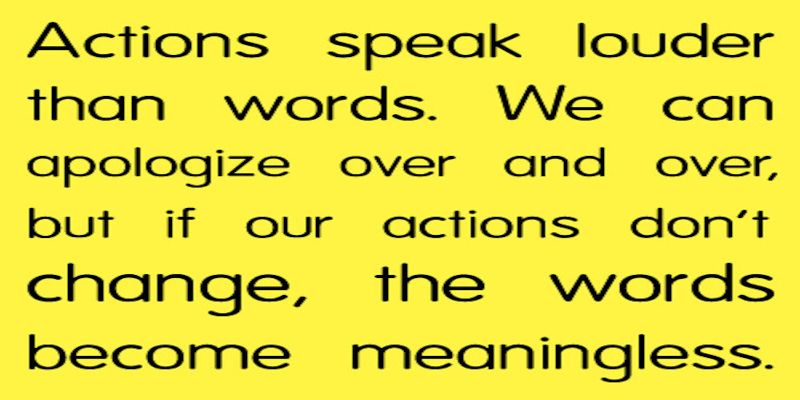

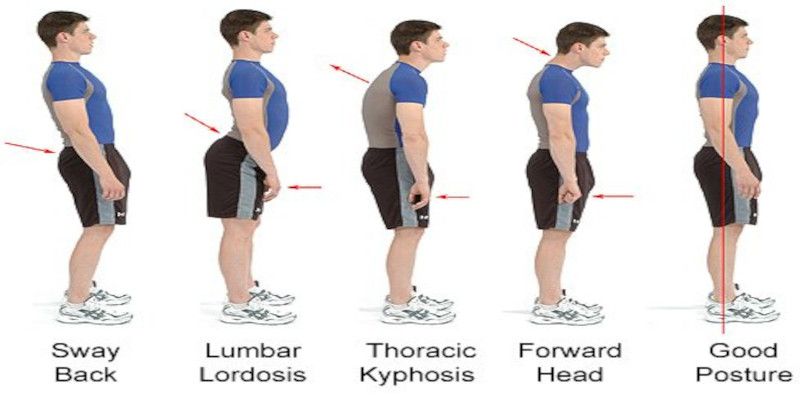





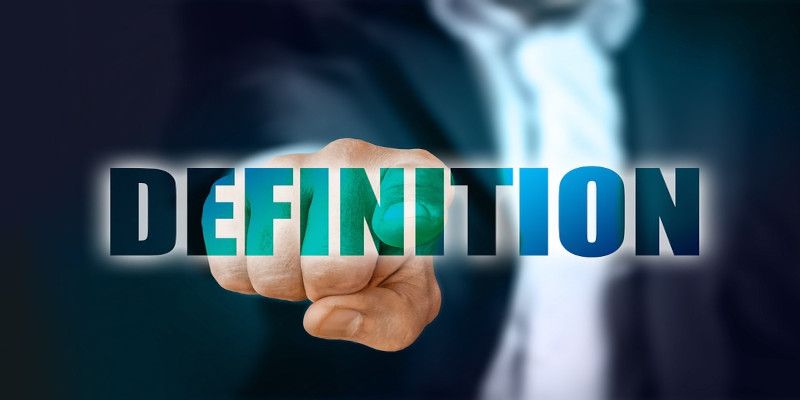
4 thoughts on “How to find out someone’s intentions”
Comments are closed.